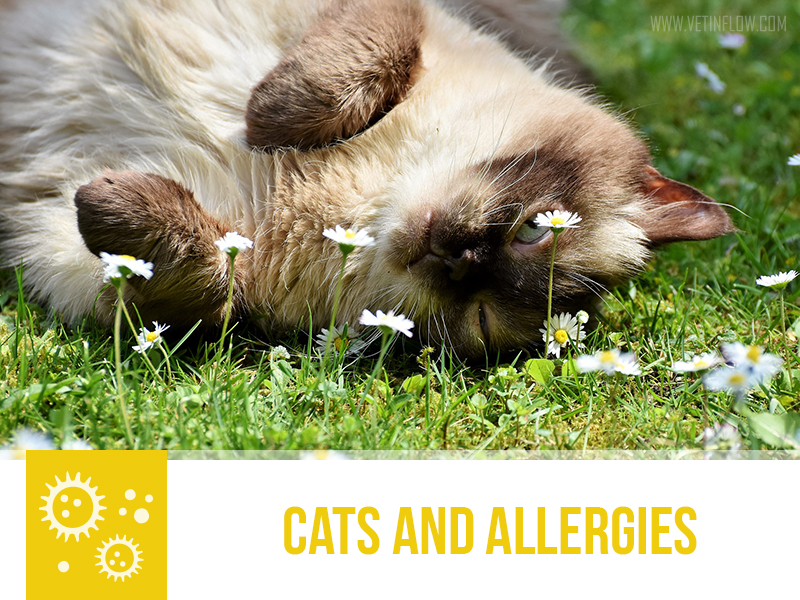
Cats and allergies

Cats can have allergies just like we do.
There are three large groups of allergic reactions that can affect cats: flea allergy dermatitis (FAD), atopy and food allergy. If a cat has one type of allergy, he or she is more prone to have the others as well.
Allergies are caused by an inappropriate inflammatory reaction to allergens that are naturally present in the environment. Cases of FAD and atopy appear when the allergen comes in contact with a susceptible pet's skin or inner lining of the mouth/nose. In food allergy cases the allergen is ingested.
Allergies are all typically associated with moderate to severe itching and excessive grooming, which often results in skin lesions.
Flea allergy dermatitis is caused by the allergens present in the flea's saliva and in such cases the skin lesions are more frequently distributed along the cat's back and base of the tail. Sensitive cats require very little exposure to show clinical signs. It can occur in cats of any age, sex, or breed.
Atopy can be caused by a number of different allergens found in the environment, like in grass, dust mites or pollens. Sometimes, it has a seasonal occurrence. You will generally find skin lesions on the face, abdomen, hands and feet. The disease usually occurs in cats aged between six months and five years, and purebred cats seem to have a higher risk of suffering from this condition than domestic shorthaired cats.
Food allergy can be caused by different ingredients in your pet's diet such as chicken, rice, lamb, amongst others. You may notice an increase in the number of times your cat uses the litter box or that he or she doesn't produce nicely formed stools. Food allergy can affect cats of any age or sex, although Siamese and Burmese cats seem to be more predisposed to suffer from this condition.
Allergies are not very easy to diagnose because they cause clinical signs that are commonly seen in other skin conditions. Allergen testing and elimination diets can help reach a diagnosis.
Managing these allergic conditions depend on each particular case. For some pets it can be as simple as keeping your cat's flea treatment up-to-date, while others may require lifelong therapy.
If you notice your cat is itching more than usual or showing any other signs that something is not as it should be, take your pet to the vet.
Published: 24 May 2018
Read the previous article: Taking your pet on holidays

